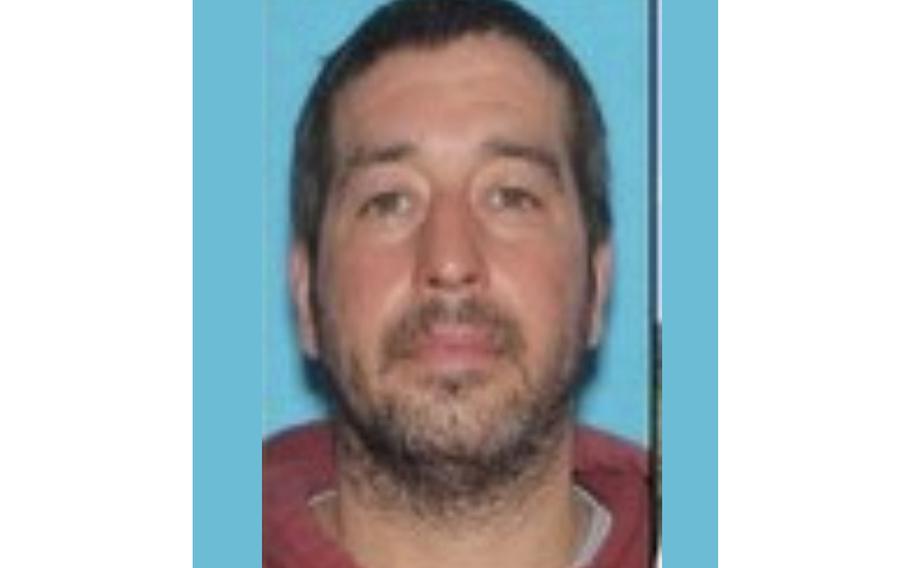
Army reservist Robert Card was identified as a person of interest in connection to the Oct. 25, 2023, mass shootings in Lewiston, Maine. (Lewiston Maine Police Department/TNS)
(Tribune News Service) — The Maine mass shooter who was a U.S. Army Reservist had a traumatic brain injury before he killed 18 people and injured more than a dozen others last year, according to Boston University researchers.
The family of Robert Card released the findings of his brain tissue analysis through the Concussion Legacy Foundation on Wednesday.
In October, the 40-year-old man went on a rampage in Lewiston — killing 18 people and injuring more than a dozen other victims. He later took his own life.
The Boston University CTE Center had been examining his brain, and lead researcher Ann McKee found that Card had significant evidence of traumatic brain injuries at the time of the shootings.
There was no evidence of CTE (chronic traumatic encephalopathy) — a progressive degenerative disease affecting people who have suffered repeated concussions and traumatic brain injuries. Many football players who sustained repetitive head impacts have suffered from CTE.
“Robert Card had evidence of traumatic brain injury,” McKee, director of the BU CTE Center, said in a statement. “In the white matter, the nerve fibers that allow for communication between different areas of the brain, there was significant degeneration, axonal and myelin loss, inflammation, and small blood vessel injury.”
“These findings align with our previous studies on the effects of blast injury in humans and experimental models,” McKee later added. “While I cannot say with certainty that these pathological findings underlie Mr. Card’s behavioral changes in the last 10 months of life, based on our previous work, brain injury likely played a role in his symptoms.”
The family is allowing further studies on Card’s brain to help with McKee’s research.
Card was a U.S. Army Reservist and a longtime instructor at an Army hand grenade training range, where it’s believed that he was exposed to thousands of low-level blasts.
“We want to begin by saying how deeply sorry and heartbroken we are for all the victims, survivors, and their loved ones, and to everyone in Maine and beyond who was affected and traumatized by this tragedy,” Card’s family said in a statement. “We are hurting for you and with you, and it is hard to put into words how badly we wish we could undo what happened.
“While we cannot go back, we are releasing the findings of Robert’s brain study with the goal of supporting ongoing efforts to learn from this tragedy to ensure it never happens again,” the family said, later adding, “We know it does not fully explain Robert’s actions, nor is it an excuse for the horrific suffering he caused, but we thank Dr. McKee for helping us understand his brain damage and how it may have impacted his mental health and behavior.”
The family added that they want to raise awareness of traumatic brain injury among military service members.
“And we encourage more research and support for military service members with traumatic brain injuries,” the family said. “Our hearts remain with the victims, survivors, and their families.”
©2024 MediaNews Group, Inc.
Visit at bostonherald.com.
Distributed by Tribune Content Agency, LLC.